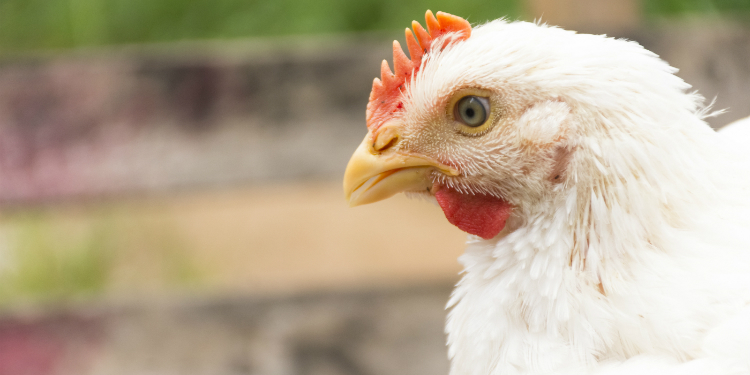
The production of broiler chickens in Brazil is one of the concerns in the crescent food output caused by population growth.
The prediction made by FAO (Food and Agriculture Organization of the United Nations) is that, in 2020, the chicken meat is going to be the most eaten meat in the entire world, something never seen before on the world stage
To reach high levels of production, our country and the whole world has been using technologies that attempt to integrate nutrition, handling and genetics, looking forward to increase productivity in lesser spaces and time spent. Being so, there are many factors to guarantee the animal welfare, producing broiler chickens with higher quality, to meet consumer needs. Stay with us!
Animals should be free from hunger and thirst, always. Broiler chickens’ diet must be satisfactory, safe and appropriate. The animals should get ready access to clean, fresh and potable water. The diet must be balanced and, during feeding, the competitiveness for food must be minimal, offering enough space in feeders and drinkers.
To get rid from animal discomfort and stress, the environment must be designed considering their needs. That involves providing protection to birds and preventing physical and thermal nuisance. The adequate temperatures from the breeding environments are crucial for the quality of life of animals and, hence, for the quality of the produced meat. In cases of environmental temperature above 40°C, without the appropriate handling of humidity and ventilation, birds could die due to thermal stress. Deploy thermo-hygrometers in sheds to determine if humidity and temperature are according to the birds’ needs.
The differences between broiler chickens’ performance could be strongly related to the genetic factors in the animals. It is important to carefully observe the genetic potential of breeds, age for slaughter, handling, sex, nutrition and health for each one of them. Therefore, prepare adequate conditions for the broiler chickens, according to the breed’s necessities.
There are many risks of contamination both to the human being as for the animal and one of those failure consequences is decreasing the herd’s productivity and the profit of the poultry manager, threatening human health. It is important to be serious about biosecurity to granges and slaughterhouses, to ensure disease prevention and contamination from infectious agents, both external and internal. All safety procedures must be adopted to not interfere with the product’s quality and the health of those who are involved with the breeding or processing phases. Invest in adequate equipments for hygiene and disinfection of the facilities and be aware of the best practices in cleaning efficiency.
The vaccination is fundamental to avoid the risk of poultry and human contamination. The concern with the animal health must be continuous, because the mortality risks are very alarming if there is a virus contamination. Keep your birds and involved employees vaccinated against avian flu and be alert to the animal health.
Do you apply these welfare attitudes to the poultry that you breed? Tell us your experiences!